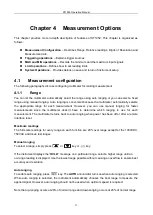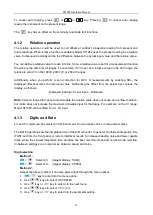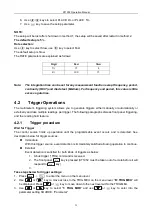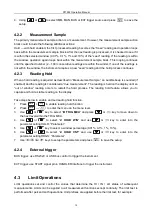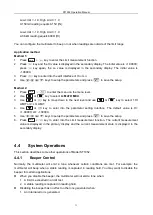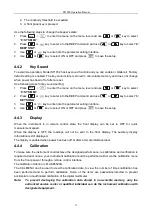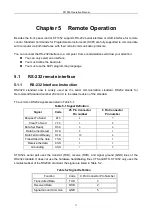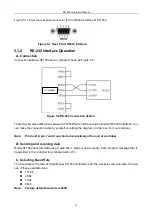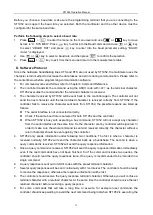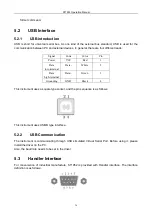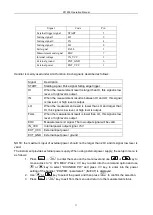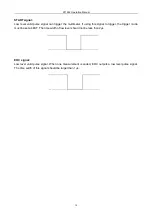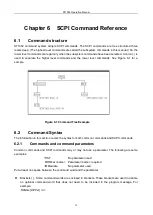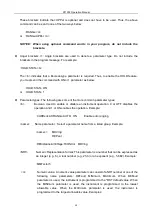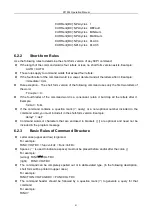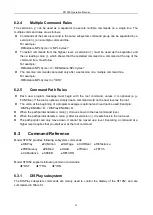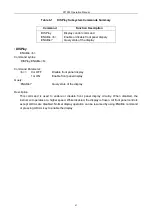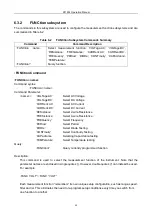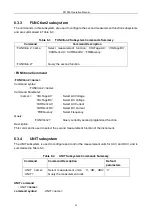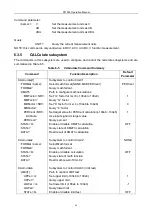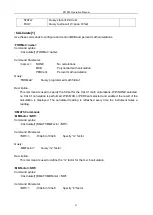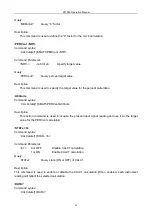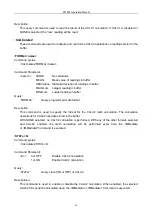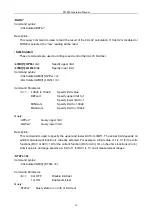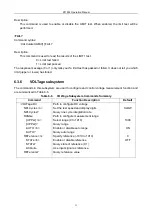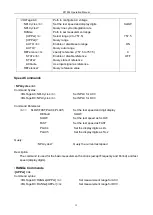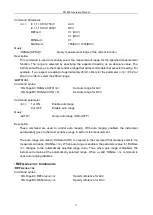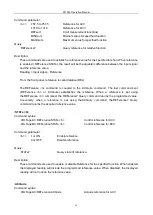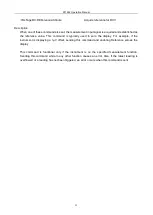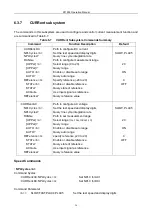
ST1952 Operation Manual
41
:CURRent[:DC]:NPLCycles 1
:CURRent[:DC]:NPLCycles DEFault
:CURRent[:DC]:NPLCycles MINimum
:CURRent[:DC]:NPLCycles MAXimum
:CURRent[:DC]:NPLCycles PLAC4
:CURRent[:DC]:NPLCycles PLAC5
6.2.2 Short-form Rules
Use the following rules to determine the short-form version of any SCPI command:
If the length of the command word is four letters or less, no short form version exists. Example:
:AUTO =:AUTO
These rules apply to command words that exceed four letters:
If the fourth letter of the command word is a vowel, delete it and all the letters after it. Example:
:immediate =:imm
Rule exception – The short form version of the following command uses only the first two letters of
the word.
:TCouple = :tc
If the fourth letter of the command word is a consonant, retain it but drop all the letters after it.
Example:
:format = :form
If the command contains a question mark (?; query) or a non-optional number included in the
command word, you must include it in the short-form version. Example:
:delay? = :del?
Command words or characters that are enclosed in brackets ([ ]) are optional and need not be
included in the program message.
6.2.3 Basic Rules of Command Structure
Letter case (upper and low) is ignored.
For example:
FUNC:VOLT:DC = func:volt:dc = Func:Volt:Dc
Spaces (
︺
is used to indicate a space) must not be placed before and/or after the colon (:).
For example:
(wrong) FUNC
︺
:
︺
VOLT:DC
(right) FUNC:VOLT:DC
The command can be completely spelled out or in abbreviated type. (In the following description,
short form will be printed in upper case.)
For example:
FUNCTION: VOLTAGE:DC = FUNC:VOLT:DC
The command header should be followed by a question mark (?) to generate a query for that
command.
For example:
FUNC?

